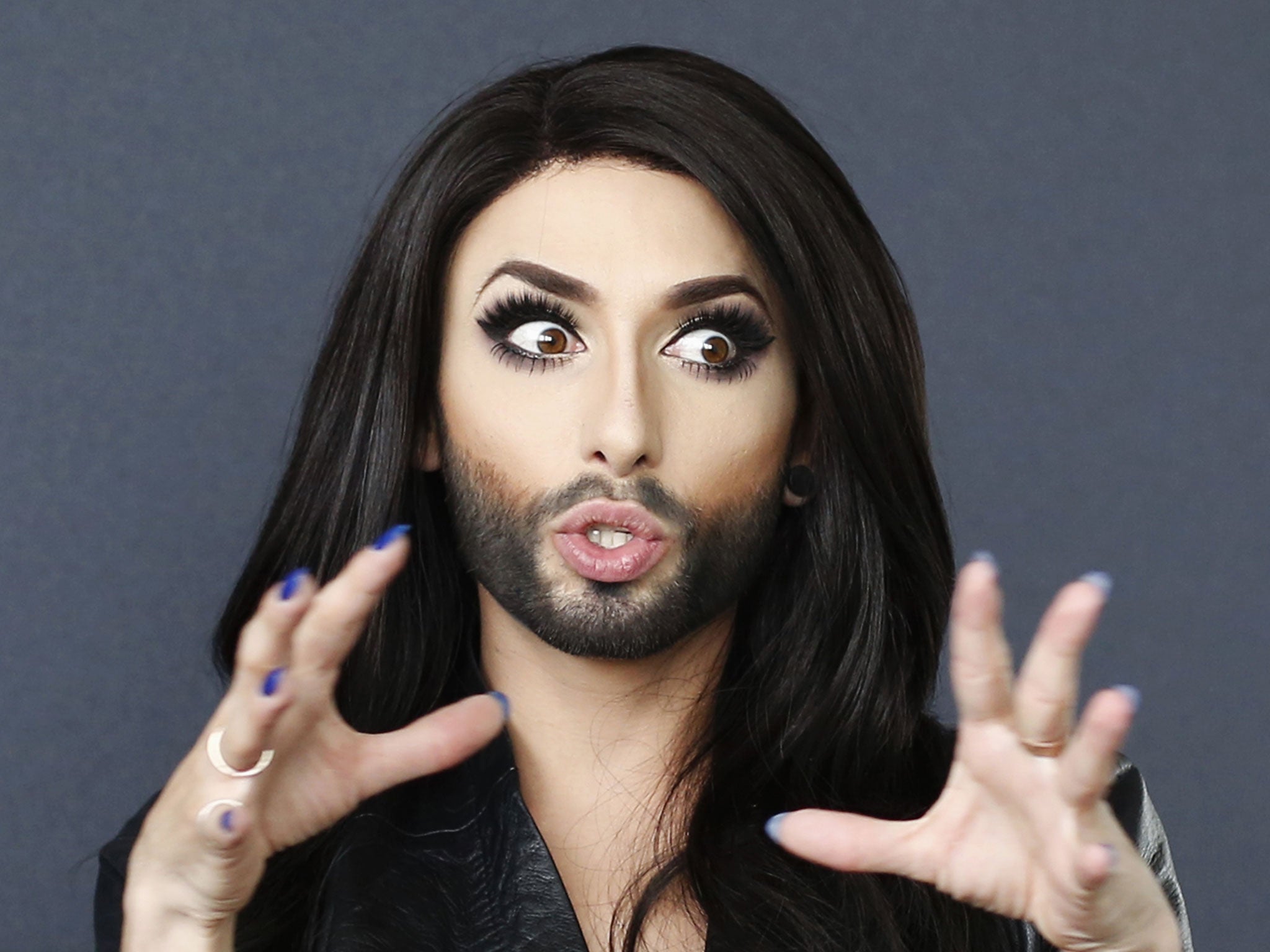Eurovision 2014: Austria's Conchita Wurst hits back at transphobic criticism and defends the beard
Wurst will perform for Austria at the Eurovision Song Contest in Copenhagen

Your support helps us to tell the story
From reproductive rights to climate change to Big Tech, The Independent is on the ground when the story is developing. Whether it's investigating the financials of Elon Musk's pro-Trump PAC or producing our latest documentary, 'The A Word', which shines a light on the American women fighting for reproductive rights, we know how important it is to parse out the facts from the messaging.
At such a critical moment in US history, we need reporters on the ground. Your donation allows us to keep sending journalists to speak to both sides of the story.
The Independent is trusted by Americans across the entire political spectrum. And unlike many other quality news outlets, we choose not to lock Americans out of our reporting and analysis with paywalls. We believe quality journalism should be available to everyone, paid for by those who can afford it.
Your support makes all the difference.Conchita Wurst has hit back at transphobic criticism ahead of her first Eurovision performance tonight.
The Austrian entry, real name Tom Neuwirth, will sing “Rise Like a Phoenix” in a gold gown, with full make-up and a well-groomed beard.
Her performance has received a backlash from some conservative Eastern Europeans, including Russian politician Vitaly Milonov, who called Stephen Fry “sick” last year.
However, Wurst has insisted that she has “a very thick skin” and will continue with her set come what may.
“I can only say ‘Thank you for your attention!’” she told the Associated Press.
“If this is only about me and my person, I can live with it. I'm just a singer in a fabulous dress, with great hair and a beard.”
Milonov argued last week that “pervert” Wurst would “insult millions of Russians” by taking part in the “Europe-wide gay parade”. The politician was an architect behind the country’s strict anti-gay propaganda law, which has sparked controversy worldwide.
In response to his comments, Wurst said: “It’s strange that a little facial hair causes that much excitement. I have to add that 80 per cent of autograph requests I get are from Russia and Eastern Europe – and that’s what is important to me.”
Petitions in Russia and Belarus had called for national broadcasters to edit out live coverage of Wurst’s performance, but this is forbidden by the European Broadcasting Union. The organisation has not received any formal complaints, spokesman Jarmo Siim has confirmed.
The 25-year-old Austrian is not the first trans person to enter Eurovision. Israel’s Dana International won the song contest in 1998 having undergone male-to-female gender reassignment surgery prior to competing.
Russia is expected to suffer in the voting for both its rigid stance on homosexuality and the current crisis in Ukraine.
Russian twins Anastasia and Maria Tolmachevy were booed during the first semi-final in Copenhagen on Tuesday but made it through to Saturday’s final, as did Ukraine’s Mariya Yaremchuk, who was cheered by the crowd.
Votes cast from Crimea will still count for Ukraine, even though Russia has annexed the region, as the phone operator is Ukrainian.
Wurst will have to beat hot favourite Aram MP3 from Armenia, who described her lifestyle as “unnatural” before apologising and insisting he was “joking”.
Other key contenders include Sweden’s Sanna Nielsen, Hungary’s Andras Kallay-Saunders and the UK’s own Molly Smitten-Downes.